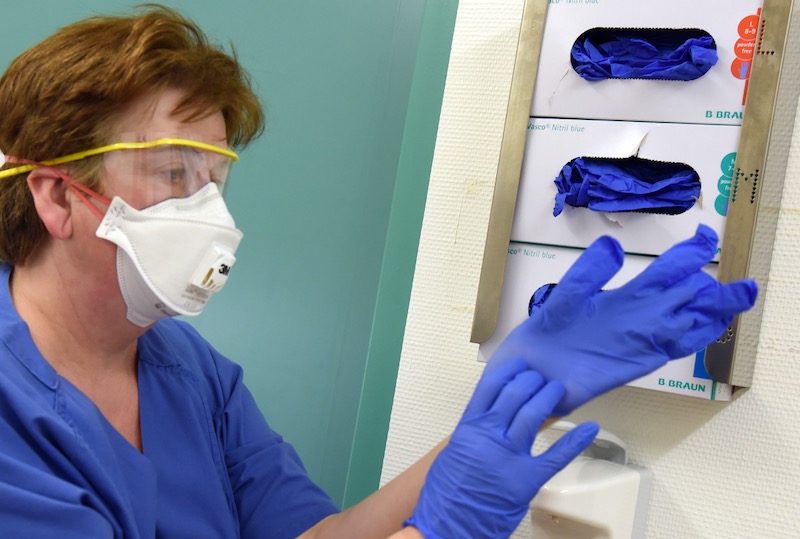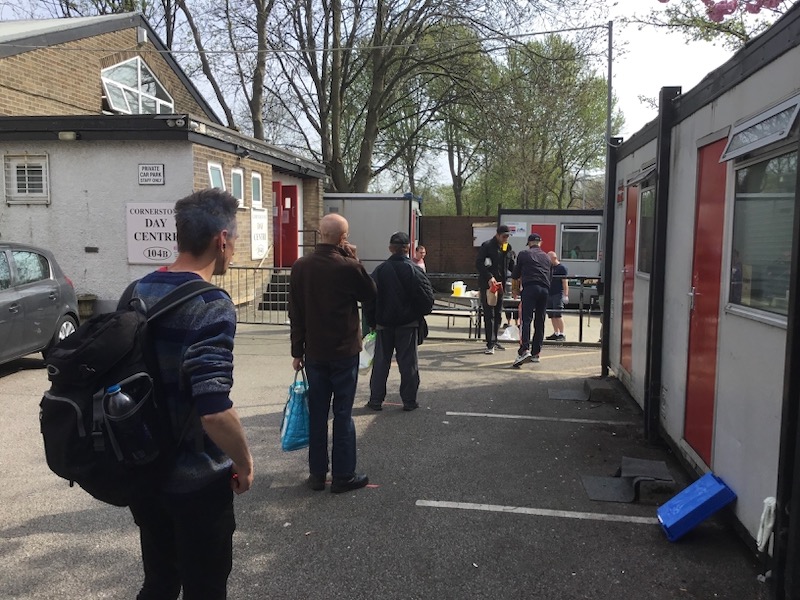The Covid-19 pandemic has led to the temporary suspension of all refugee resettlement to the UK, including families arriving under the Community Sponsorship Scheme.
Sean Ryan, Caritas community sponsorship coordinator, told The Tablet this week that under the scheme, pioneered by St Monica’s parish in Salford Diocese, 55 Catholic parishes over the past four years have offered to sponsor and resettle a destitute refugee family.
Of these, 24 have already welcomed a family, 21 are lined up to do so, with the remaining 10 still in the Home Office application process. The families are predominantly Syrian but some are from Jordan, Lebanon, Iraq, Turkey and Egypt.
For those refugee families already here, “the pandemic has brought the wider community sponsorship family together in a wonderful spirit of friendship, solidarity and mutual support, as evidenced by the well-attended twice weekly conference calls” said Sean.
Projects with families already here have had to be creative, with resettlement and health support continuing via video conferencing. Covid-19 restrictions have prompted daily Facetime catch-ups, games and fitness workouts for families, plus catch-up meetings in the family’s front garden or through open front windows.
Sponsorship funds have been used to buy food vouchers and extra devices for families to engage with home schooling and home English classes via Zoom. Arabic copies of government Covid-19 guidance have been provided.
The community sponsorship scheme devolves responsibility for a family’s entire journey, from arrival through to settled independence, to parish communities, led by trained volunteers. Around 100 refugees have received a warm welcome, a new home, intensive support and an opportunity to rebuild their lives.
Sean said: "There has been a quiet revolution in how this country welcomes the stranger.” He pointed out the programme does not deal with spontaneous arrivals, such as more than 140 migrants intercepted in the English Channel last weekend.
Yet, there is awareness of the enormous difference between how refugees arriving under the resettlement programme are typically treated in contrast to the often inhumane treatment of spontaneous arrivals and people trapped in the asylum system.
This week the Cross-Channel human rights initiative, People not Walls, called on the French and British governments to provide shelter, sanitary facilities and opportunities to claim asylum for refugees gathered in Northern France who are considering making dangerous Channel crossings in the hands of people smugglers.
In Salford Diocese, Stonyhurst College was the first school in the UK to become a sponsor and welcome a family under the community sponsorship scheme. Set in rural Lancashire, the challenges of lockdown and social distancing have been made even more challenging for both the family and the local community of volunteers due to the need for one of the family members to be shielded.
Catherine Hanley, lay chaplain, said the pandemic had brought the community closer together to support the family. “Volunteers are assisting with on-line home-school tutoring for the children and English classes, plus connecting the family online with other refugee families in the resettlement scheme”.
Volunteers have arranged for local produce to be delivered directly to the family and the local iman based in Clitheroe has sourced halal food for the family. “We are all working together to make the most of a very challenging time for us all,” said Catherine.
Caritas Salford accommodates ten refugees and asylum seekers in pods on a car park at the Cornerstone day centre in Moss Side, Manchester. “They are dependent entirely upon charity and have very little control over their day to day lives,” said Director Mark Wiggin, “and this can bring a great deal of stress and anxiety as their activity is greatly restricted.”
He told The Tablet that during the pandemic Caritas staff are there 24 hrs a day to support them. “Many are strong and have endured many hardships before coming to this country” he said, “but the current difficulties can and do put additional strains on the mental health and wellbeing of some”.
In Westminster, George O’Neill, chief executive of the Cardinal Hume Centre, said its immigration team is continuing to provide legal advice over the phone and sometimes in person in order to sign or process urgent paperwork.
A priority is those whose "leave to remain" status is ending and who need help with renewal to ensure they keep their rights to work and reside in the UK.
The team is also helping those who have lost jobs because of the crisis but have no recourse to public funds, and 26 immigration clients – mostly with children – have been given supermarket vouchers.
The centre remains open 24 hours a day. “It is perhaps not a heroism that matches the efforts of those working for the NHS in critical care, but it is a vital part of keeping society going and protecting some very vulnerable lives” George told The Tablet.
The Jesuit Refugee Service UK (JRS) reports that the loss of drop-in services has left destitute asylum seekers without food or cash to pay for mobile phone credit.
JRS has delivered 270 parcels of essential food and toiletries across London in the last few weeks along with mobile phone top-ups. A Mastercard scheme has been organised to get emergency hardships grants to people safely. JRS has arranged creative activities and prayer on online platforms to help ease isolation.
Staff are working from home, but director Sarah Teather said they are "busier than ever”. She reported that “destitute asylum seekers have been facing an emergency situation since lockdown and JRS UK has had to respond at speed, radically changing the way it works to take essential help onto the road and provide support by phone."
JRS has been called upon to provide “intense levels” of emotional support and casework as people they support face street homelessness because of a breakdown in informal living arrangements. “We hear heart-breaking stories every day from those unable to access housing or food” said Sarah. "I am hugely grateful for our supporters for responding to our emergency appeal in this time.”
Meanwhile, last Monday, 52 people flew from Athens to London on a flight to reunite refugees with their families in the UK. Many came from refugee camps on Greek islands. The rescue operation followed nearly two months of effort by the Greek and British authorities and the refugee charity Safe Passage International. Passengers all had permission from the British government to join their relatives in the UK but were stranded in Greece when commercial flights were suspended in mid-March.



 Loading ...
Loading ...